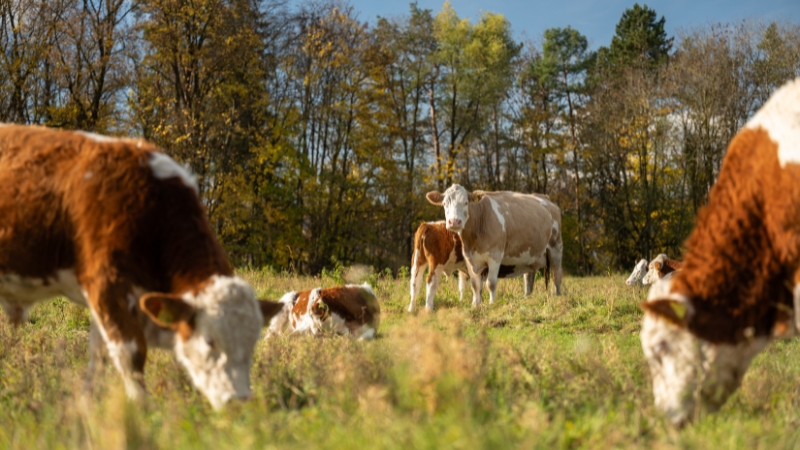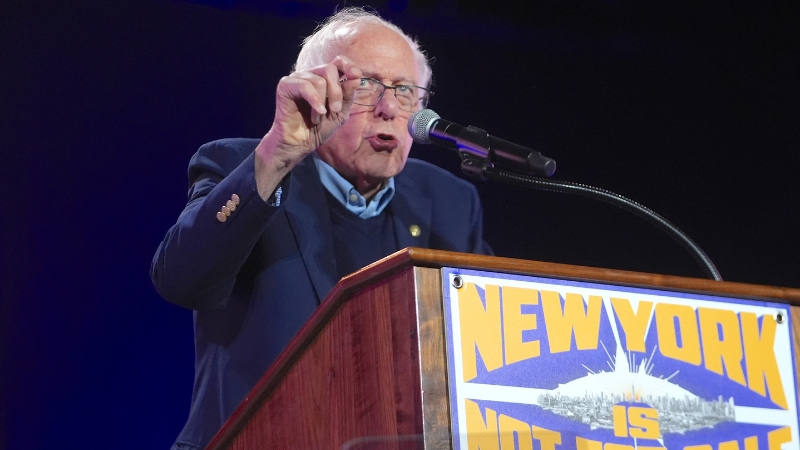 Image Credit: picture alliance / Contributor / Getty Images
Image Credit: picture alliance / Contributor / Getty Images The rumen. One of the great engineering marvels of the natural world. A gift from Mother Nature herself.
Without the rumen, there’d be no cows, sheep, goats, or deer—or giraffes—and that means no rib-eye steak, no lamb chops, no venison loin, no milk, no yoghurt, no butter or cream.
Imagine, for a moment, a world without butter or cream. It scarcely bears thinking about.
All of these animals depend on a rumen, and three other highly specialised stomachs (reticulum, omasum and abomasum), to digest and convert complex plant fibres into more useful products, like fatty acids and protein, which can then be used by the animal for energy and growth.
In a cow, the rumen has about the capacity of your average bathtub (100-200 litres). It contains billions of microorganisms—bacteria, protozoa, fungi and archaea—that all work together in harmony, feeding themselves and in the process feeding the cow or sheep or giraffe—and eventually us. Not that I’ve ever eaten giraffe, mind.
The rumen is a complex biological system, and like all complex biological systems, we understand it only partially. In recent years, there have been advances in recreating the rumen in laboratories around the world, so that desirable products, like biofuels, chemicals or so-called “cultured meat,” can be produced cheaply in bioreactors.
Still, however much we understand about the rumen, there’s so much more we don’t. In such situations, caution is usually the best principle. Tread lightly, fools rush in—that sort of thing. A cack-handed intervention, even if well-meaning, could be disastrous.
If anything is likely to make man throw caution to the wind in 2025, it’s climate change. And the whole climate-change narrative puts ruminants in a tricky position, because the rumen is responsible for producing methane, a greenhouse gas. Livestock are estimated to produce around 5% of the world’s greenhouse gas emissions, mostly in the form of burps and farts. This has made livestock one of the main targets for environmentalists looking to slow climate change, since they can’t bring themselves, out of a sense of white guilt and profound cowardice, to challenge the brown and yellow people burning oceans of oil and forests of coal every day.
And so some bright spark somewhere came up with the idea of interfering in the Byzantine interconnected processes, all those millions and millions of chemical reactions, that take place in the cow’s rumen, to prevent it from producing methane.
Some scientists have investigated using a seaweed compound to reduce cow burps and farts, and others have resorted to an artificial compound known as 3-nitrooxypropanol (3-NOP).
3-NOP is the main ingredient in Bovaer, a feed additive that’s been licensed for use in Brazil and Europe. I reported back in December of last year that Bovaer was about to be trialled on cows in the UK, in a partnership between mega-diary consortium Arla and the supermarkets Tesco, Morrisons and Aldi. People were upset, rightly, because they said the additive hadn’t been properly tested and nobody knows what effects it has on the cows or the food they produce. When I go to the local organic shop in town, a notice on the fridge assures me that none of the dairy products have been produced by cows fed with Bovaer.
The response from industry was typical for our New Normal world. They accused critics of spreading “misinformation” and “far-right conspiracy theories.” And yes, some of the information was wrong. Bovaer is made by DSM Firmenich, a Swiss company with no ties to poop-sniffer-in-chief Bill Gates. He of the Lilac Sweater is working on his own version, however.
A yet more sinister strategy had already been adopted in Norway, where the government has decided methane-inhibitors must be added to all cattle feed by 2027. Norwegian dairy company Tine started adding them to its feed early and brought out a new product called “Future Milk,” which was marketed as a more eco-friendly alternative to traditional milk. Nobody wanted to buy it. So what did Tine do? They just mixed their special Future Milk in with their normal milk and stopped telling anybody. If consumer choice is a problem, well just get rid of it, people and cows be damned.
We’re told Bovaer has been tested extensively and shown to be safe. It had to be tested to be approved for use. But now, in the last few days, we’ve got the best evidence yet that it isn’t. In Denmark, farmers have been adding Bovaer to their cows’ feed since the beginning of October, and many of their cows are sickening, producing less milk, even collapsing. Some have had to be euthanised to put them out of their misery.
The farmers know it’s the Bovaer. What else has changed? They’ve bravely spoken up and now the National Association of Danish Dairy Producers is investigating. Many farmers have stopped using Bovaer, and the Association will get its members to sign a declaration that if their animals get sick, they’ll stop using the additive immediately.
The Association is now pressuring the Danish government to declare a timeout on the use of Bovaer, until more information about its safety can be gathered. The governing body for Denmark’s vets has commissioned university researchers to get to work and find out what’s going on.
This is a familiar, dismal, story. It’s the story of food over the last century or more, and of our unprecedented decline into ill health and dependency: the consolidation of the food supply in the hands of corporations—Bovaer is a proprietary formula—and its adulteration with ingredients and additives whose safety was never fully established before they were introduced. Only decades later, with obesity and chronic disease a national epidemic, are we finally starting to look properly at what’s been put in our foods by corporations with the connivance of the FDA.
Real meaningful testing should have been done from the start. Thankfully, Secretary of Health and Human Services Robert F. Kennedy Jr. is now doing something to change that, banning certain additives like red dyes and promising a complete overhaul of the way food additives are licensed.
The US can and should act decisively to prevent the use of methane-inhibitors on American cattle. Ban them now. They’re not safe. Anyone who tells you otherwise is lying.


